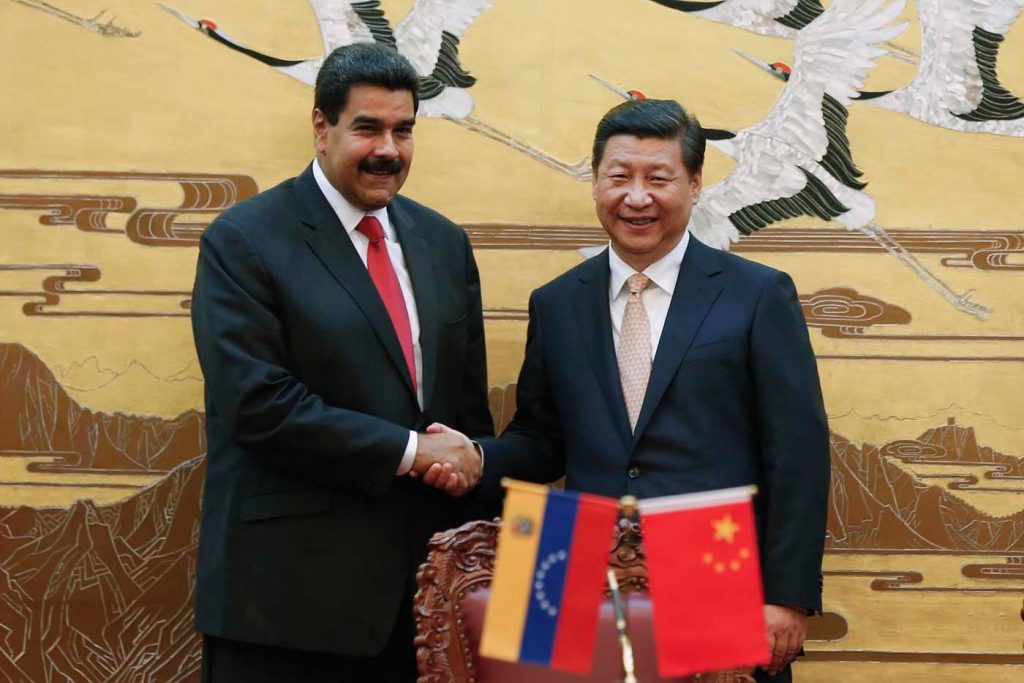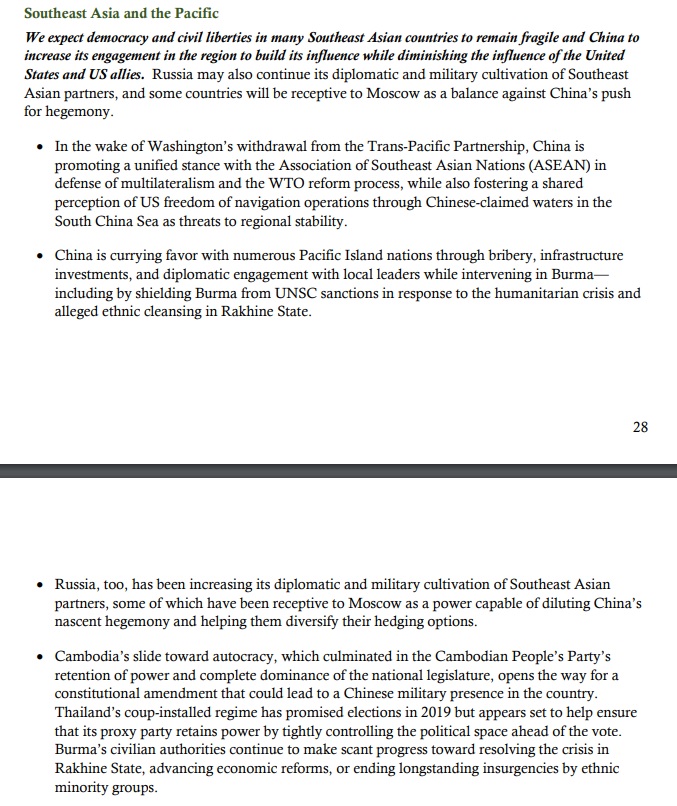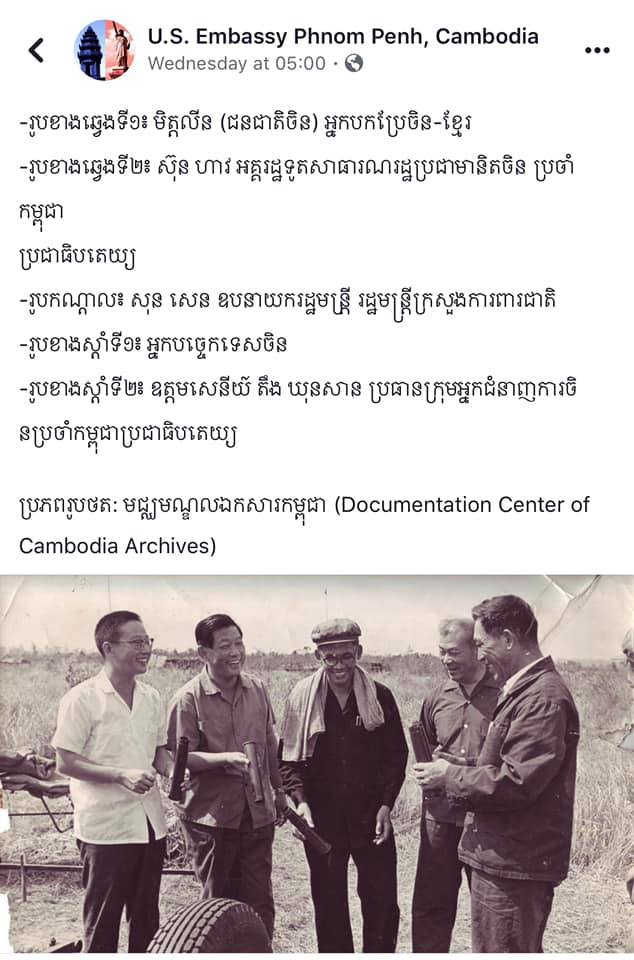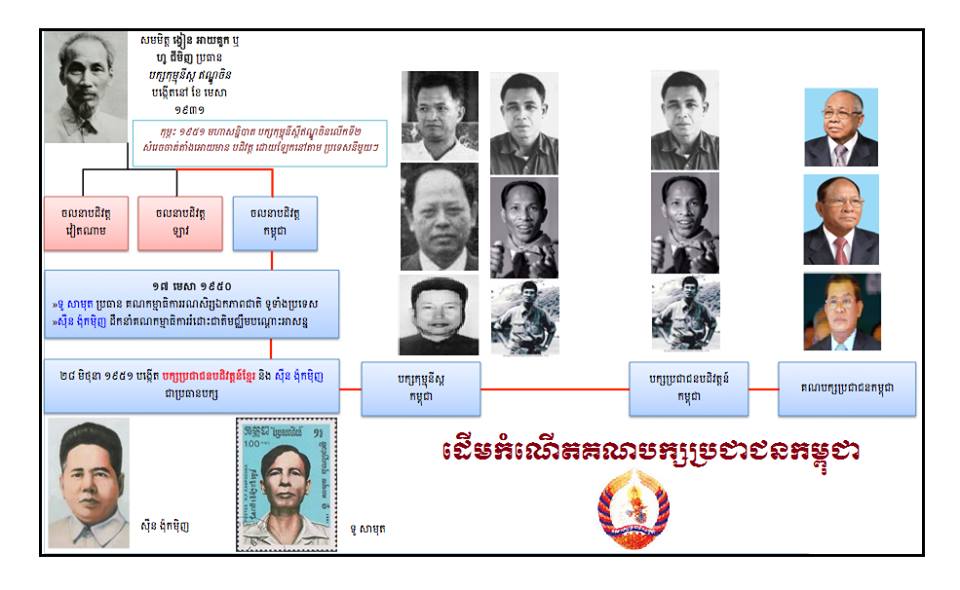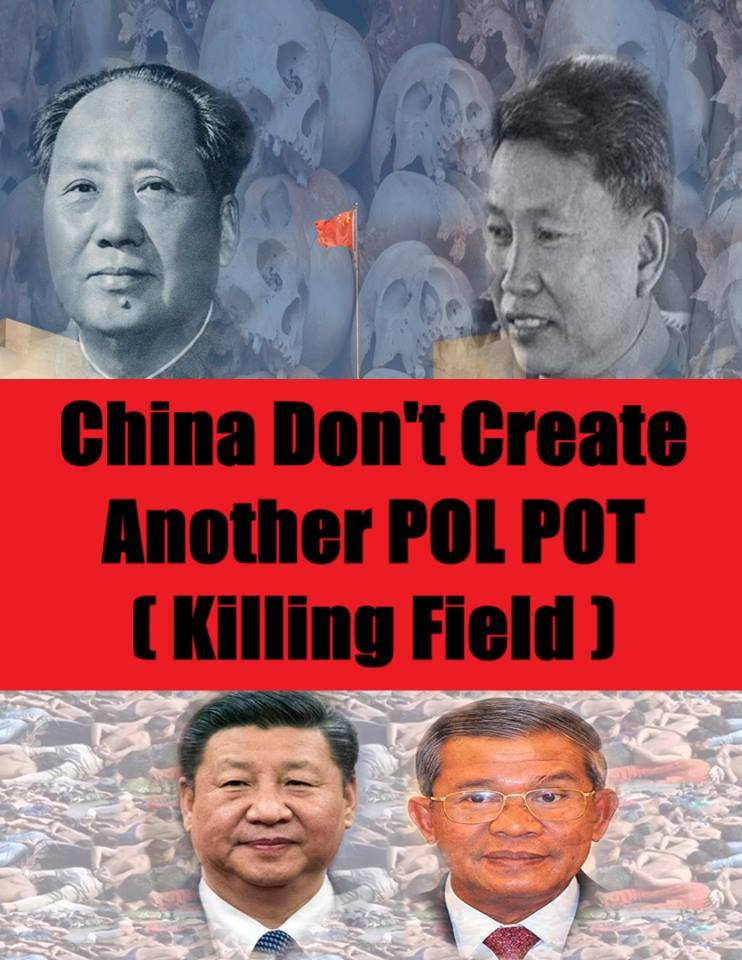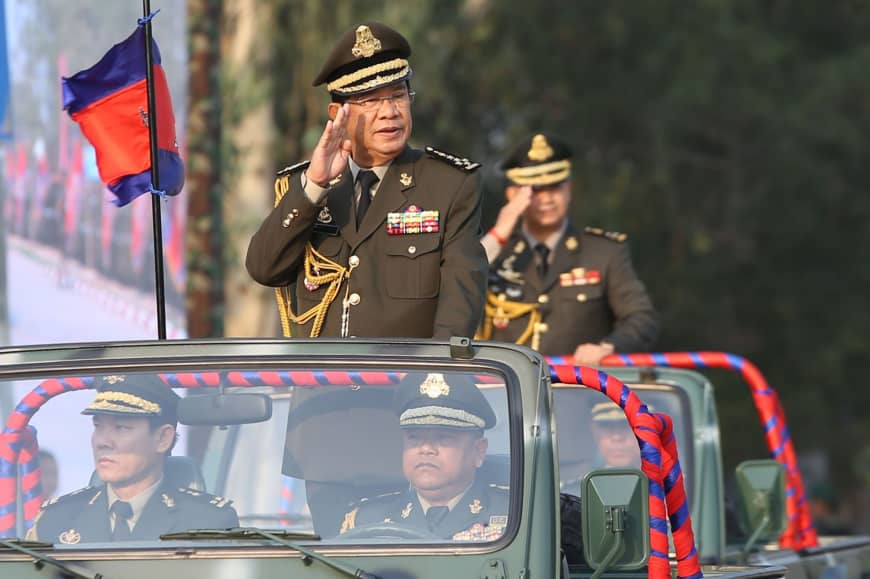យល់ស្របនិងគាំទ្រលោកពូបណ្ឌិតទាំងស្រុង។
នៅប្រទេសកាណាដា ព្រះមហាក្សត្របដិបត្តិតាមរដ្ឋធម្មនុញ្ញយ៉ាងពេញលេញមិនមានខ្វះចន្លោះត្រង់ណាទេ។ ព្រះអង្គមានតំណាងនៅគ្រប់ជាន់ថ្នាក់តាមប្រព័ន្ធគ្រប់គ្រងប្រទេសកាណាដាបែបរដ្ឋាភិបាលនិងសភាជាតិ(federal government and MPs), រដ្ឋាភិបាលថ្នាក់ខេត្តនិងសភាខេត្ត(provincial government and MLAs), និងរដ្ឋបាលថ្នាក់ស្រុកឃុំសង្កាត់និងក្រុមប្រឹក្សាស្រុកឃុំសង្កាត់(city mayor and city councillors)។ តុលាការកំពូល-ឧទ្ទរ-ថ្នាក់ជាតិឈ្មោះថាព្រះមកុដិ(crown)។ អ្នកបកស្រាយច្បាប់ ជ្រើសរើស-ដាក់វិន័យ-បញ្ឈប់ចៅក្រម(judges)និងអយ្យការ(persecutors)មានឈ្មោះថាជើងម៉ាព្រះរាជក្សត្រិយានី(queen bench)។

Op-Ed: Lao Mong Hay, PhD, facebook page
ព្រះរាជបល្ល័ង្កនិងរាជានិយមខ្លាំងហើយ មិនបាច់ការពារបន្ថែមទេ បើព្រះមហាក្សត្រអាចធ្វើឲ្យតុលាការឯករាជ្យ និងកុំឲ្យមានការរំលោភសិទ្ធិមនុស្សបាន ដែលជាតួនាទីរបស់លោកចែងក្នុងរដ្ឋធមនុញ្ញ
នឹងធ្វើដូច្នេះបានលុះណាតែនាយករដ្ឋមន្ត្រី អ្នកដឹកនាំស្ថាប័នរដ្ឋ និងរដ្ឋមន្ត្រី ពាក់ព័ន្ធ គាំទ្រសកម្ម ថ្វាយសហការពេញលេញ និងរៀបចំស្ថាប័ន យន្តការនិងនីតិវិធីសមស្រប ជា សេនាធិការជួយ ឲ្យព្រះមហាក្សត្រប្រើប្រាស់ព្រះរាជសិទ្ធិនិងបំពេញ ព្រះរាជតួនាទីរបស់លោកដោយជាក់ស្តែងសកម្មនិងពេញលេញ និងឲ្យលោកមានការទទួលខុសត្រូវចំពោះប្រជាជាតិផង ។
ព្រះរាជសិទ្ធិនិងតួនាទីរបស់ព្រះមហាក្សត្រដែលមានចែងក្នុងរដ្ឋធម្មនុញ្ញ មានជាអាទ៍៖
១ ព្រះរាជសិទ្ធិលើកលែងទោសនិងបន្ធូរបន្ថយទោស (មាត្រា២៧) គឺទុកឲ្យលោកសម្រេចដោយ មិនចាំបាច់ឲ្យមានការស្នើសុំពីប្រមុខរដ្ឋាភិបាល ដូចសព្វថ្ងៃនេះ ។
២ តួនាទីជា មេបញ្ជាការកំពូលនៃកងយោធពលខេមរភូមិន្ទ (មាត្រា២៣) គឺសុំឲ្យលោកមានឯកសណ្ថាន យោធា យាងលោកឲ្យគង់ជាព្រះអធិបតីក្នុងការប្រារពពីធីយោធានានា និងយាងត្រួតពល នឹងឲ្យអគ្គ មេបញ្ជាការដែលលោកតែងតាំងទទួលខុសត្រូវចំពោះលោក ដែលមិនបានធ្វើសព្វថ្ងៃនេះ ។
៣ តួនាទី ជាអ្នកធានាឯករាជ្យរបស់តុលាការ (មាត្រា១៣២.- ថ្មី) គឺទុកឲ្យលោកគ្រប់គ្រងឧត្តមក្រុមប្រឹក្សា នៃអង្គចៅក្រម ជាសេនាធិការជួយលោកឲ្យធានាឯករាជ្យនោះឲ្យបាន រួមមានការតែងតាំងចៅក្រមក្រម ព្រះរាជ្ញអាជ្ញាឯករាជ្យ និងត្រួតពិនិត្យកុំឲ្យមានអំពើពុករលួយ ដែលមិនបានធ្វើសព្វថ្ងៃនេះ។
៤ តួនាទីធានា ការគោរពសិទ្ធិសេរីភាពរបស់ប្រជាពលរដ្ឋ (មាត្រា៨) គឺជួយឲ្យលោកមានយន្តការ ត្រួតពិនិត្យ ការការគោរពសិទ្ធិសេរីភាពទាំងនោះ និងឲ្យតុលាការដាក់ទណ្ឌកម្មទៅលើការរំលោភ ដែលមិនបានធ្វើសព្វថ្ងៃនេះ ។
៥ នាយករដ្ឋមនត្រីនិងគណរដ្ខមន្ត្រីត្រូវចូលសវនា២ដងក្នុង១ខែដើម្បីរាយការណ៍ថ្វាយលោកនិងស្ដាប់ ព្រះរាជតម្រិះពីលោក (មាត្រា២០) ។ សវនាការនេះដូចអត់មានផងសព្វថ្ងៃនេះ ។
៦ តួនាទីព្រះអធិបតី សមាជជាតិដែលត្រូវធ្វើឡើងនៅខែធ្នូ រៀងរាល់ឆ្នាំ ដើម្បីឲ្យប្រជាពលរដ្ឋចូលរួមស្តាប់ រដ្ឋាភិបាលនិងធ្វើសំណូមពរជូនវិញ និងឃើញលោកធ្វើការផ្ទាល់ផង ។ សមាជនេះអត់ទានបានបង្កើតទេ មកទល់សព្វថ្ងៃនេះ ។
សូមធ្វើការកត់សំគាល់បន្តិចថា សព្វថ្ងៃនេះ ព្រះមហាក្សត្រខ្មែរ ដូចជាមិនខុសពីព្រះចៅអធិរាជជប៉ុន មុនឆ្នាំ១៨៦៨ ប៉ុន្មានទេ ។ ដំបូងឡើយនៅជប៉ុន គឺ ព្រះចៅអធិរាជតែងតាំងមេទ័ពកំពូល ដែលភាសា ជប៉ុនហៅថា ហ្សូហ្គុន – Shogun – ជានាយករដ្ឋមន្ត្រី ។ នាយករដ្ឋមន្រ្តីមេទ័ពកំពូលនោះ យកអំណាច អស់ពីព្រះចៅអធិរាជ ហើយក៏តែងតាំងកូនៗឲ្យស្នងជានាយករដ្ឋមន្ត្រីមេទ័ពកំពូលតត្រកូល ។ ពួកគេ ទុកឲ្យព្រះចៅអធិរាជ គង់នៅក្នុងវាំងនៅទីក្រុង គីយ៉ូដូ – Kyodo – ឆ្ងាយដាច់ដោយឡែក ហើយនាយក រដ្ឋមន្ត្រីមេទ័ពកំពូលធ្វើការដឹកនាំប្រទេសនៅទីក្រុង អេដូ – Edo – ដែលក្រោយមកដូរ ឈ្មោះជា តូក្យូ – Tokyo ។ ត្រកូលនាយករដ្ឋមន្ត្រីមេទ័ពកំពូលចុងក្រោយ – Shogunate – គ្រប់គ្រងប្រទេសជប៉ុន ២៥០ឆ្នាំ រហូតដល់មានរដ្ឋប្រហាររំលំនិងថ្វាយអំណាចឲ្យទៅព្រះចៅអធិរាជគ្រប់គ្រងវិញនៅឆ្នាំ១៨៦៨ ។

